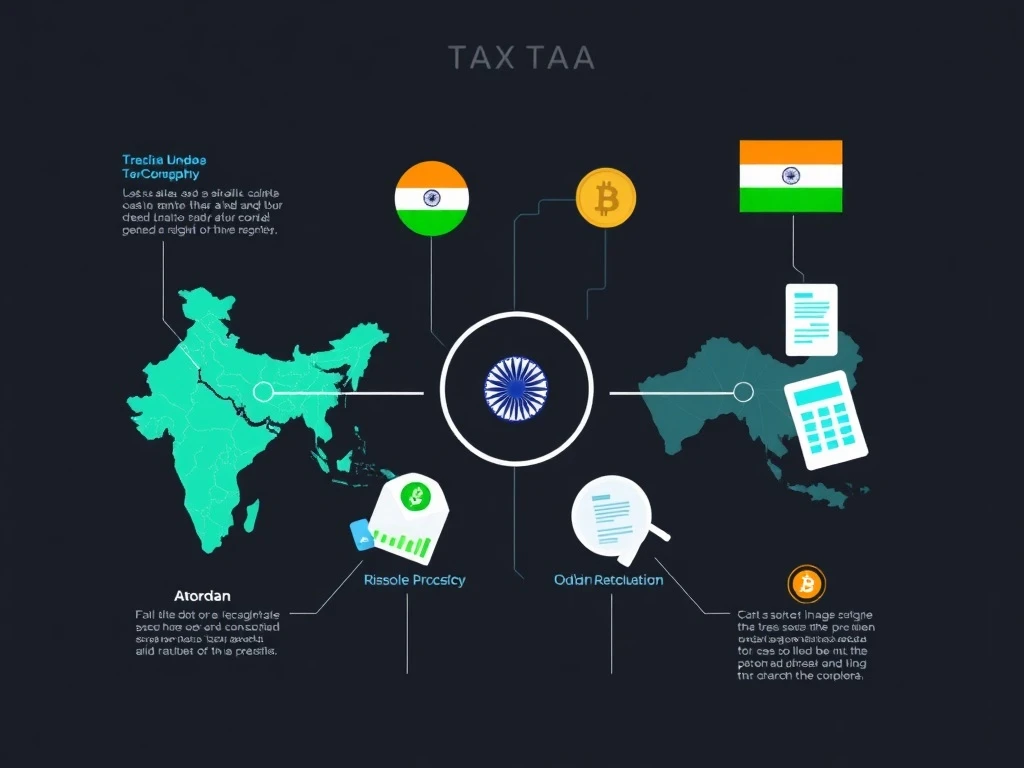India’s cryptocurrency landscape faces a monumental shift as the government implements groundbreaking crypto tax reporting requirements that will transform how investors manage their digital assets. This strategic move positions India at the forefront of global financial transparency initiatives.
Understanding India’s Crypto Tax Reporting Framework
The Indian government recently adopted the OECD’s Crypto-Asset Reporting Framework (CARF), establishing comprehensive crypto tax reporting standards. This framework mandates automatic information exchange between participating countries. Consequently, Indian residents must now report all foreign virtual asset holdings regardless of value. The new crypto tax reporting requirements significantly expand the government’s monitoring capabilities.
Global Implementation Timeline
India plans complete implementation by April 2027 through legislative amendments. The Multilateral Competent Authority Agreement (MCAA) will facilitate automated cross-border data sharing. Meanwhile, 48 countries including major economies have already committed to similar crypto tax reporting frameworks. South Korea confirms administrative regulations this year with data exchange starting 2027.
Impact on Crypto Investors
The enhanced crypto tax reporting requirements present both challenges and opportunities for investors. Key changes include:
- Expanded reporting obligations for all offshore holdings
- Automated information exchange with partner nations
- Stricter compliance measures for virtual asset transactions
- Standardized reporting formats across jurisdictions
Industry Response and Migration Patterns
Many crypto firms previously relocated to favorable jurisdictions like UAE due to India’s 30% flat tax. However, the new crypto tax reporting framework addresses transparency concerns rather than reducing tax burdens. Industry experts note this focus on compliance over regulatory clarity may continue affecting domestic crypto ecosystem development.
Future Global Implications
The international consensus on crypto tax reporting standards continues growing. Harmonized digital asset taxation reduces evasion risks significantly. Furthermore, decentralized asset challenges finally receive tailored solutions through specialized reporting mechanisms. This global alignment represents a watershed moment for cryptocurrency regulation worldwide.
Frequently Asked Questions
What is the CARF framework?
The Crypto-Asset Reporting Framework is an OECD standard for automatic exchange of cryptocurrency transaction information between tax authorities.
When do the new reporting rules take effect?
India plans full implementation by April 2027, with legislative amendments completing before that date.
Do I need to report small offshore holdings?
Yes, the new rules require reporting all foreign virtual assets regardless of value, removing previous thresholds.
Which countries are participating?
48 countries including the US, UK, Germany, Japan, and South Korea have committed to implementing similar frameworks.
How will this affect crypto exchanges?
Exchanges must implement new reporting systems and share transaction data with tax authorities automatically.
Will tax rates change under the new framework?
The framework focuses on reporting transparency rather than altering existing tax rates or structures.








